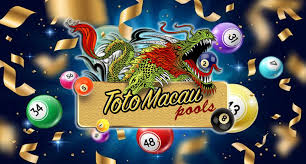Slot machines have long been a staple in casinos around the world, captivating players with their colorful designs, enticing link mechaslot, and the promise of big wins. Despite being simple in concept, these machines are complex in operation and have evolved significantly since their inception. This article explores the history, mechanics, types, and strategies associated with slot machines.
A Brief History of Slot Machines
The origins of slot machines date back to the late 19th century. The first mechanical slot machine, known as the “Liberty Bell,” was invented by Charles Fey in 1895. It featured three spinning reels and a simple payout system based on a combination of symbols, including horseshoes, diamonds, and the Liberty Bell itself. This design laid the groundwork for the modern slot machine.
Over the decades, slot machines transitioned from mechanical devices to electronic systems, and eventually to the digital formats we see today. The introduction of video slots in the 1970s brought a new dimension to the gaming experience, allowing for enhanced graphics, animations, and more diverse themes.
How Slot Machines Work
Modern slot machines operate using random number generators (RNGs), which ensure that each spin is independent and unpredictable. When a player pulls the lever or presses the spin button, the RNG generates a random sequence of numbers corresponding to the symbols on the reels. The machine then displays these symbols, and if they align in a winning combination, the player receives a payout.
Types of Slot Machines
- Classic Slots: These machines typically feature three reels and are based on traditional fruit symbols. They offer straightforward gameplay with simple rules and fewer paylines.
- Video Slots: These are more advanced machines with five or more reels and multiple paylines. Video slots often include bonus rounds, free spins, and intricate storylines, making them appealing to a broader audience.
- Progressive Slots: In these machines, a portion of each bet contributes to a jackpot that increases over time. Progressive jackpots can reach life-changing sums, attracting players looking for massive payouts.
- 3D Slots: Combining advanced graphics with engaging gameplay, 3D slots offer immersive experiences. They often feature animated characters and elaborate themes, enhancing the overall entertainment value.
- Mobile Slots: With the rise of smartphones, many casinos now offer mobile-compatible slot games. These allow players to enjoy their favorite slots on the go, providing convenience and flexibility.
Strategies for Playing Slots
While slot machines are primarily games of chance, there are some strategies players can employ to enhance their experience:
- Understand the Paytable: Each slot machine has a paytable that outlines the payouts for different symbol combinations. Familiarizing yourself with this information can help you make informed decisions.
- Choose the Right Machine: Different machines have varying return-to-player (RTP) percentages. Opt for machines with higher RTPs, as they offer better odds over time.
- Manage Your Bankroll: Set a budget before playing and stick to it. Avoid chasing losses, as this can lead to overspending.
- Take Advantage of Bonuses: Many casinos offer promotions and bonuses that can increase your playing time without additional costs. Be sure to take advantage of these offers.
- Play for Fun: Remember that slots are designed for entertainment. While winning is exciting, focusing on the enjoyment of the game can enhance your overall experience.
Conclusion
Slot machines remain a popular form of entertainment in casinos and online gaming platforms. Their combination of chance, excitement, and the potential for big wins continues to draw players worldwide. Understanding the history, mechanics, and various types of slots can enrich your gaming experience and help you approach the game with a more informed mindset. Whether you’re a seasoned player or a newcomer, the thrill of the spin will always be a part of the slot machine’s allure.
